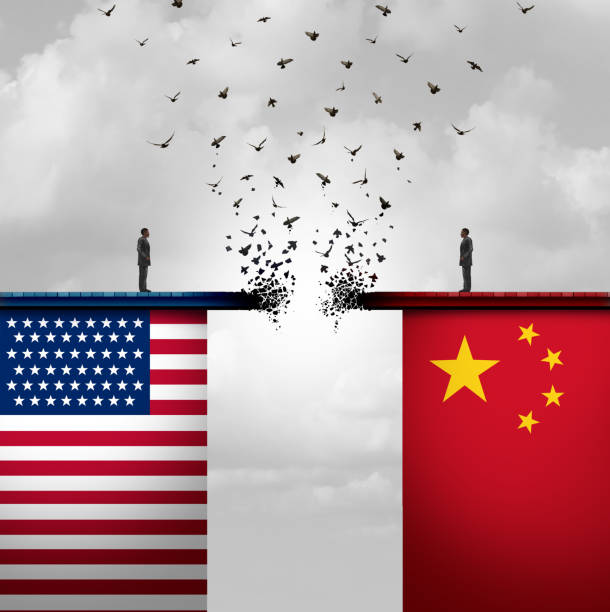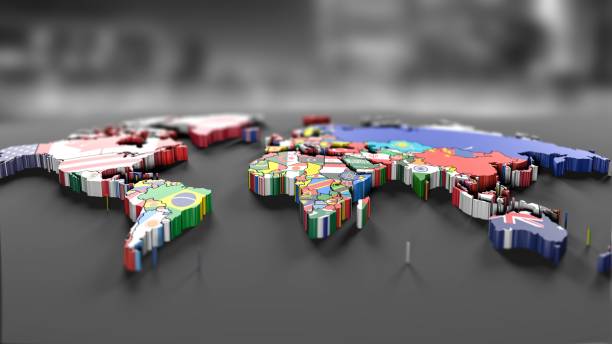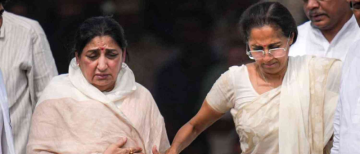Sanctions are a subtle but effective tool in the complex dance of international relations. They are frequently arranged in the upper echelons of government with the intention of reducing national errors. But what are these economic embargoes really hiding beneath the surface? Do they reveal a more nuanced story with moral ambiguity and consequences woven throughout, or are they the virtuous arm of justice, extended without bloodshed?
The Intent and Impact of Sanctions
As the world watches the unfolding drama of geopolitical chess, sanctions stand as the kings and queens of the board, commanding attention and demanding strategy. Their intent is clear: to deter, punish, and sway the policies of nations straying from the path deemed acceptable by the global community. Yet, the impact of these sanctions reaches far beyond the marbled halls of government, trickling down into the bustling markets and quiet homes of the common populace.

Consider, if you will, the beloved mango, the king of fruits in many Indian households. Imagine a sanction disrupting the supply chain of these juicy delicacies. The result? Aam aadmi's (common man's) lamentations echo through the streets, with families yearning for their seasonal mango delight. Talk about a pulpy situation!
The ripple effect of sanctions is palpable. Economies may wobble, currencies may falter, and the very livelihoods of individuals may hang in the balance. It's a sobering reminder that the tools of diplomacy can sometimes cut the hands that wield them.
The Debate on Effectiveness
The stage of global politics is fraught with conflict, and sanctions are the spotlight that often shines on the actors of war. Take, for instance, the Russian invasion of Ukraine in February 2022. The world responded with a symphony of sanctions, aiming to isolate Russia from the global financial system and reduce the profitability of its energy sector. The US, UK, EU, and other allies implemented a broad sweep of sanctions, freezing assets, banning technology exports for weapons, and targeting oligarchs and their yachts.
Historical Prelude
Before we examine the contemporary theatre of sanctions, let us cast a glance back at the annals of history. Sanctions have long been the silent sentinels of international conduct, their shadows stretching back to the city-states of ancient Greece. The Athenian trade ban on Megara not only sowed the seeds of the Peloponnesian War but also set a precedent for economic warfare—a tactic that would echo through the ages.
World War I and the Interwar Period
Fast forward to the 20th century, where the Allied Powers, during World War I, employed blockades that strangled the Central Powers' economies—a grim foreshadowing of the comprehensive sanctions that would follow in later conflicts. The League of Nations, despite its noble intentions, found its sanctions lacking the teeth to prevent Italy's aggression in Abyssinia, revealing the limitations of collective action without unanimous support.
The Cold War Era
The Cold War saw sanctions become a chess piece moved by both the US and the Soviet Union, albeit with limited impact due to the economic insulation of the opposing blocs. Yet, it was the Chaco War that witnessed the League of Nations' sanctions in action, attempting to quell the conflict between Paraguay and Bolivia with mixed results.
Effectiveness of Historical Sanctions
These historical instances paint a picture of sanctions as a tool with varying degrees of success. While they have sometimes swayed the course of events, at other times they have merely been symbolic gestures, their efficacy diluted by the complexities of international politics and the resilience of the targeted nations.

Imagine sanctions as a game of Saanp Seed (snakes and ladders), but with much higher stakes. Instead of climbing ladders of fortune, nations hit by sanctions find themselves slithering down snakes of economic hardship. Talk about a slippery situation!
A March 2024 report by the Kiel Institute for the World Economy Sanctions Tracker on Ukraine War indicates that sanctions on Russia have had a significant impact, with the Russian economy contracting by an estimated 8.5% in 2023. However, the report also acknowledges the ongoing complexities. Russia has found some workarounds through increased trade with China and India, and the full long-term consequences of sanctions remain to be seen. Are they the checkmate in this geopolitical game, or merely a stalling tactic while the pawns continue to suffer?
The Global Ripple Effect
Sanctions are not solitary creatures; they travel in packs, affecting not just the targeted country but also the global community. The sanctions on Russia, for instance, have sent shockwaves through the energy markets, with the G7 imposing a maximum price on Russian crude oil to curb earnings. The economic tremors are felt worldwide, from the stock markets of Wall Street to the gas stations of Europe.
The Humanitarian Perspective
Beneath the economic armour of sanctions lies the soft tissue of humanity. The civilian population often bears the brunt of these economic battles. In the case of Russia, sanctions have impacted everyday life, from the availability of goods to the value of the ruble. It's a stark reminder that behind every frozen asset or banned export, there are human stories unfolding.
The Future of Sanctions
As we peer into the crystal ball of international relations, the future of sanctions appears as murky as a stormy sea. With technological advancements and global interconnectedness, the question remains: will sanctions evolve into a more precise tool, or will they become an antiquated relic in the museum of diplomacy?

Conclusion
As we close the chapter on our exploration of sanctions, let us not be passive observers in the unfolding narrative of global diplomacy. I invite you, the reader, to ponder the implications of sanctions beyond the headlines. Engage in conversations, question the status quo, and consider the human element that often remains unseen. Let this article be a catalyst for thought, a spark that ignites a deeper understanding of the world we share. What role will you play in shaping the discourse on sanctions? The stage is set, and your voice is essential. Sanctions, the double-edged swords of diplomacy, continue to be a topic of heated debate. They can be wielded with precision or swung with unintended consequences. As we reflect on their role in modern conflicts, one thing is certain: the quest for balance between political objectives and humanitarian concerns remains as elusive as ever.
Sources: Multiple agencies
Ⓒ Copyright 2024. All Rights Reserved Powered by Vygr Media.
























